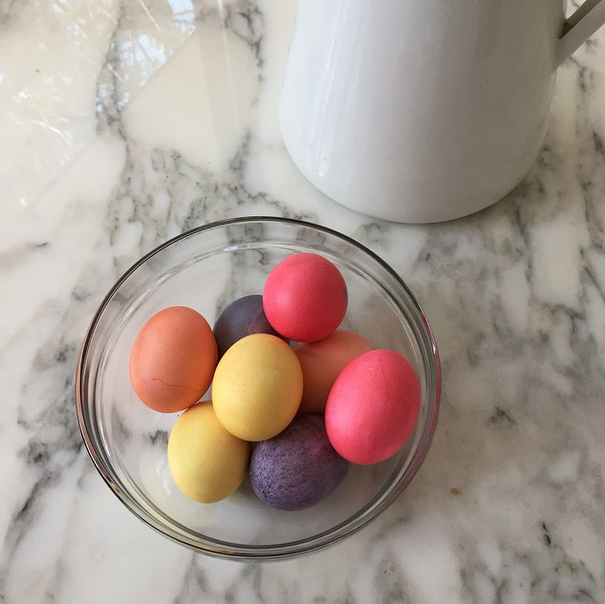The Lies I Will Tell My Child

When I was in sixth grade, a new friend brought me to her house for the first time. There, in her sun-filled kitchen, she proceeded to tell me that when she was little, her mom had told her that babies were grown in flower pots. The parents planted seeds, watered and fertilized them, and they grew there, presumably, little sprouts on the windowsill. I knew better than that, but I didn’t press her at the time for facts. “Do you think that’s an accurate representation now, of what happens?”
I scoffed at this account — not that anyone might believe it, but that someone might LIE to their child. Why would they lie? Why tell a child that God exists when I know that it doesn’t? Or the Easter Bunny or Santa Claus? I would never make up such things: flower pots! My child would hear the unvarnished truth. I was too young, and too childless, to know that maybe sometimes, creative shortcuts — lies — are the best ways to explain complicated processes: birth, life, death.
My husband and I love holidays. Because he is Jewish, and I am (was?) Catholic, we celebrate all of the holidays that come in our way: Passover, Hanukkah, Christmas. We crack out the menorah; we decorate the tree every year. So we knew that we wanted our daughter to have access to the full range of holidays; I have come to love his family’s giant Passovers, and he looks forward to the tree and the gifts of Christmas. Two months before Zelda was born, we celebrated our last Christmas alone: “We won’t have Santa Claus for her, right?” “No, of course not!” “Right, why would we lie to her?” When we consulted our friends, we got varied opinions. “What will she think when all the other kids have Santa Claus?” “You don’t want her to run around telling her friends that Santa Claus isn’t real, do you?” No, we don’t. But we also don’t want to make up a story, either.
I don’t remember believing in Santa Claus, though my parents certainly put in the effort. Much like my relationship to God, I am and have always been generally disinclined to believe in epic tales of heroic men. What I remember is pretending that I believed in Santa Claus, because I didn’t want my parents to be sad. They seemed so into the whole thing I didn’t want to let them down. And then, when I told my mother what I suspected, she confirmed it: She was Santa Claus. I spent the next several years helping her wrap presents late at night while my younger brothers slept. It became something I looked forward to: a secret time alone with my mother and father and older brother, making a special display of “Santa Claus,” for the two youngest, the two believers. I had my best Christmases after I told my parents the truth.
There is beauty in the truth. And it’s usually small and simple. My friend Jenna recently commented on the loveliness of watching Zelda drink seltzer. The bubbles are still a surprise to her, and she savors them. She stumbles through life relishing small details, picking at a leaf, examining a piece of granola for five minutes at a time. She sometimes sits alone in a sunny corner now, mumbling secret things just to herself. What is it like to have eyes that see everything this way? To live in wonder but also in acceptance? She is only just learning to act surprised at things, likely because I love to yell “Ahhhh!” when something new happens, or “Boo!” when I pop out from around the corner. She acts out her surprise, for me. It isn’t natural to her: What is natural to her, when encountering a new thing for the first time, is casual but full enjoyment, even of something less than pleasurable. Hot water on her hands is met with the same instinct to investigate as a piece of cake. She seeks the truth, and she finds it in every corner. There will be time enough for lies. She is already learning to manipulate — to fake cries and to pretend she isn’t tired, even though she can barely keep her eyes open. She will lie to me one day, I know, probably as soon as she has the language skills to accomplish the task. I hope that it’s before I lie to her.
Earlier today, Zelda and I planted broccoli seeds (her favorite vegetable) with our bare hands into big copper pots to grow outside her bedroom window. I helped her pat her little hands over the seeds, and she giggled as I poured water over them. In the next few weeks we’ll go out every day to watch her plants grow large and edible. We’ll water them and protect them from the deer with nets and love. I’ve grown plants all my adult life but I’ve never hoped for one to survive as much as I do Zelda’s broccoli.
My friend, whose mother loved gardening and told her that babies were grown in pots, owns a flower shop in San Francisco. Her own daughter is getting ready to graduate from high school. There is some truth to that story, maybe. We grow, like flowers — or broccoli — in pots.
